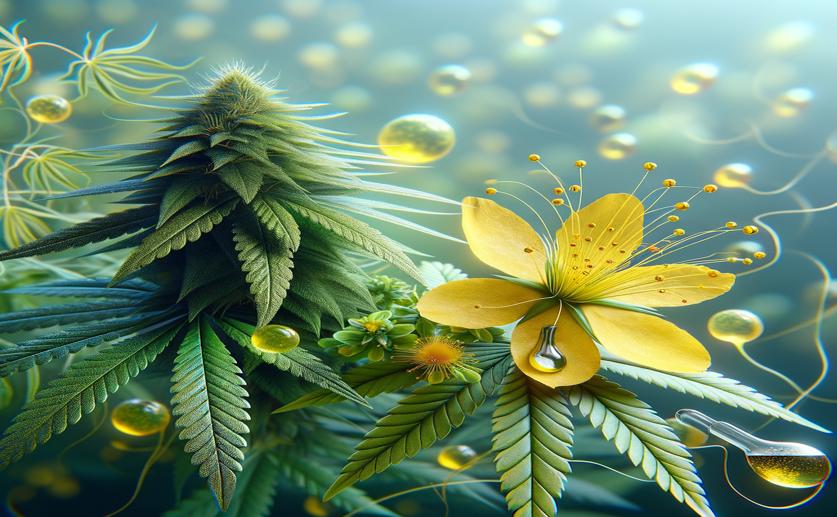
Cannabis and St. John's Wort Oil: Effective Against Leishmania Parasites
Greg Howard
18th August, 2024

Image Source: Natural Science News, 2024
Key Findings
- Researchers at Manisa Celal Bayar University studied plant extracts from hemp seeds and St. John's Wort for treating cutaneous leishmaniasis
- The chloroform extract of St. John's Wort showed significant activity against the parasite causing cutaneous leishmaniasis
- This extract was effective without harming host cells, making it a promising new treatment option
References
Main Study
1) Semen Cannabis and Oleum Hyperici: Antileishmanial activity against Leishmania tropica promastigotes and intracellular amastigotes.
Published 15th August, 2024
https://doi.org/10.1016/j.parint.2024.102950
Related Studies
2) Leishmaniasis in Turkey: first clinical isolation of Leishmania major from 18 autochthonous cases of cutaneous leishmaniasis in four geographical regions.
3) The current epidemiology of leishmaniasis in Turkey, Azerbaijan and Georgia and implications for disease emergence in European countries.
4) Antimony resistance in leishmania, focusing on experimental research.
5) Anti-leishmanial physalins-Phytochemical investigation, in vitro evaluation against clinical and MIL-resistant L. tropica strains and in silico studies.



 15th August, 2024 | Jenn Hoskins
15th August, 2024 | Jenn Hoskins